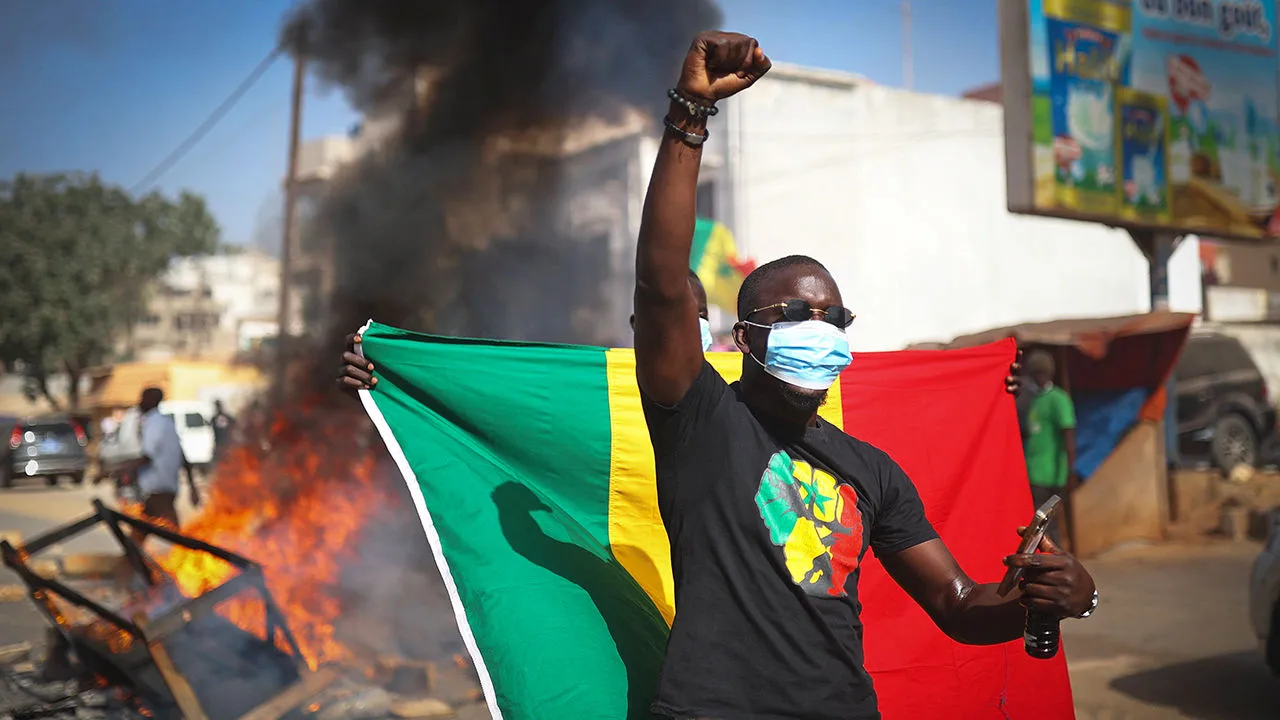In a surprising turn of events that has sent shockwaves through West Africa, Senegal, long celebrated as a pillar of stability and democratic governance in a region fraught with political upheaval, finds itself in the throes of a significant political crisis. The root of the turmoil lies in President Macky Sall’s unexpected decision to postpone the presidential elections, initially scheduled for February 25, until December 15. This move has ignited widespread protests across the nation and raised serious questions about the future of democracy in Senegal and its implications for the wider region.
The crisis unfolded when Senegal’s parliament, in a session marked by chaos and the forceful removal of opposition lawmakers, voted to delay the election. This decision effectively extends President Sall’s tenure beyond the end of his constitutionally mandated term in April. The government’s justification for the postponement centers on disputes over the eligibility of presidential candidates, a rationale that has done little to quell the anger and frustration of the Senegalese people and the opposition, who view this as a “constitutional coup.”
The streets of Dakar, the capital, have since been scenes of unrest, with citizens expressing their dissent through protests that have, at times, turned violent. The government’s response has been to restrict mobile internet access, a move criticized by international human rights organizations as an assault on freedom of expression. This crackdown on protests and communication has only served to exacerbate the situation, highlighting the tensions between the government’s actions and the democratic principles Senegal is known for.
The opposition, led by figures such as activist and lawmaker Guy Marius Sagna, has vehemently rejected the election delay, calling on the populace to resist what they term a usurpation of their democratic rights. The situation is further complicated by the disqualification of key opposition leaders from the election, a move that has led to accusations of the government manipulating the electoral process to maintain power.
The crisis in Senegal is not just a domestic issue but has significant regional implications. The Economic Community of West African States (ECOWAS), a regional bloc of which Senegal is a key member, has found itself in a precarious position as it calls for the restoration of the electoral calendar. This comes at a time when ECOWAS is already dealing with the fallout from military coups in neighboring countries, raising concerns about the stability of democratic governance in West Africa.
The international community is closely watching the unfolding events in Senegal. The African Union and the United Nations have urged for a peaceful resolution and the swift organization of elections. However, the effectiveness of these calls remains to be seen, as the government appears steadfast in its decision.
Senegal’s political crisis is a critical test for democracy in West Africa. A nation once hailed as a model of democratic governance is now at a crossroads, with its future uncertain. The outcome of this crisis will not only determine the trajectory of Senegal’s democracy but also set a precedent for the region, where the balance between governance, stability, and democratic freedoms is increasingly fragile.
As the situation develops, the international community must remain vigilant, supporting a resolution that upholds the democratic values and stability that have made Senegal a beacon of hope in West Africa. The coming months will be crucial in shaping the future of Senegal and, by extension, the democratic landscape of the region.
Source link
